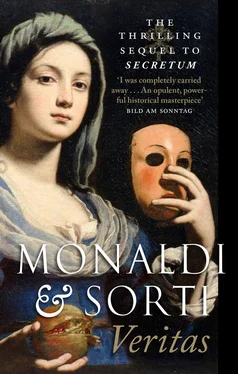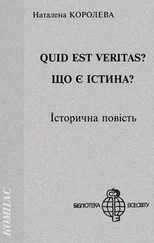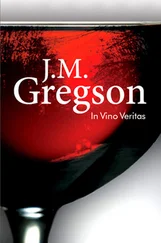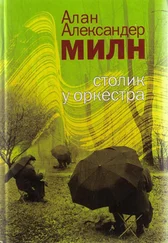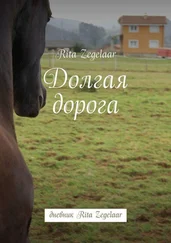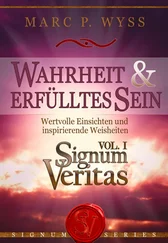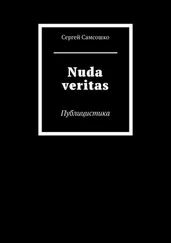Rita Monaldi - Veritas
Здесь есть возможность читать онлайн «Rita Monaldi - Veritas» весь текст электронной книги совершенно бесплатно (целиком полную версию без сокращений). В некоторых случаях можно слушать аудио, скачать через торрент в формате fb2 и присутствует краткое содержание. Жанр: Исторический детектив, на английском языке. Описание произведения, (предисловие) а так же отзывы посетителей доступны на портале библиотеки ЛибКат.
- Название:Veritas
- Автор:
- Жанр:
- Год:неизвестен
- ISBN:нет данных
- Рейтинг книги:3 / 5. Голосов: 1
-
Избранное:Добавить в избранное
- Отзывы:
-
Ваша оценка:
- 60
- 1
- 2
- 3
- 4
- 5
Veritas: краткое содержание, описание и аннотация
Предлагаем к чтению аннотацию, описание, краткое содержание или предисловие (зависит от того, что написал сам автор книги «Veritas»). Если вы не нашли необходимую информацию о книге — напишите в комментариях, мы постараемся отыскать её.
Veritas — читать онлайн бесплатно полную книгу (весь текст) целиком
Ниже представлен текст книги, разбитый по страницам. Система сохранения места последней прочитанной страницы, позволяет с удобством читать онлайн бесплатно книгу «Veritas», без необходимости каждый раз заново искать на чём Вы остановились. Поставьте закладку, и сможете в любой момент перейти на страницу, на которой закончили чтение.
Интервал:
Закладка:
It was not, unfortunately, a donation in the Grand Duchy of Tuscany, as the Abbot had led me to believe back then, but much further off, on the other side of the Alps even.
However, in our current dire straits, it was manna from heaven. How could we refuse?
Vienna
FEBRUARY 1711
The drum roll resounded over the bare snowy plain that lay before the city walls. Its powerful thunder interwove with the silvery serpentine sounds of the parade trumpets, the military pipes and horns. This martial commotion was redoubled by the echo that bounced off the massive walls, amidst fortifications, ravelins and earthworks, so that it sounded as if there were not just one line of players, but three or four, or perhaps even ten.
While a military regiment drilled outside the city walls, from within the ramparts we felt upon us the severe gaze of church spires and palace pinnacles, belfries crowned with crosses and castellated towers, serene domes and airy terraces — a host of sacred and profane rooftops that warn the traveller: what you have reached is not an anonymous cluster of men and things, but a benign cradle of souls, a powerful fortress, a protector of trade, blessed by God.
As our carriage drew close to the Carinthian Gate, the entrance to Vienna for travellers from the south, I saw those proud and noble pinnacles rise up one by one against the leaden sky.
Supreme among them, as the coachman pointed out, was the lofty and sublime spire of the Cathedral of St Stephen, a dazzling fretwork of intricate decorations, with the added embellishment of a gleaming mantle of snow. Not far off was the sturdy octagonal campanile of the church of the Dominicans. Then came the noble bell tower of St Peter of the Holy Trinity, as well as those of St Michael of the Barnabite Fathers and St Jerome of the Coenobite Franciscan Fathers, and then the pinnacle of the Convent of the Virgins at the Gate of Heaven, and many others besides, crowned by onion spirals, typical of those lands, each culminating, at the very top, in golden globes surmounted by the holy cross.
Finally, there was the symbol of the supreme imperial authority: I espied the great tower of the Caesarian Palace, in which Joseph the First of the Habsburg House of Austria, glorious Sovereign of the Holy Roman Empire, had reigned happily for six years.
With the music of the military regiment calling us to discipline, the grandiose fortified walls of the city obliging us to modesty and the innumerable bell towers of the city disposing us to the fear of God, I began to picture to myself the sinuous curves of the Danube, which, as I knew from the books I had perused before our departure, flowed on the far side of Vienna. But above all I silently invoked the name of the leafy dark mass, which now, between one cloud and another, began to take shape on the horizon, gentle with its hilly rotundities, and yet mighty, as it loomed steeply over the waters of the river and gazed silently eastwards: the city’s silent and heroic sentinel. It was the Kahlenberg, the glorious mountain that had saved the West: it was from this woody promontory, overlooking Vienna and the river, that the Christian armies, twenty-eight years earlier, had freed the city from the great siege of the Turks, and delivered Europe from the threat of Mahomet.
It was no surprise that I remembered those events so clearly. All those years ago, in September 1683, while everyone in Rome and Europe was tremulously awaiting the outcome of the Battle of Vienna, I was working as a servant boy in an inn, where I served lunches and dinners. There I had met my wife, Cloridia, and, among the many guests in the hotel, a certain Abbot Melani.
Screwing up my eyes, with the carriage wheels creaking as they forced their way out of yet another ditch, I saw a ray of sunlight strike the little building on the summit of the Bald Mountain, perhaps a church — yes, a little chapel, the very one where (so memory — or rather history, as it was by now — told me) a Capuchin father, at dawn on 12th September 1683, the day of the decisive assault, had said mass and harangued the Christian commanders before leading them to the bloody but blessed final victory over the Infidels. Now I was going to touch with my own hand, or rather my own feet, the shining relics of the past; I myself would tread the gentle hills of neighbouring Nussdorf, where the infantrymen of the Christian armies, battling from house to house, from barn to barn, from vineyard to vineyard, had driven back the wretched curs of Mahomet.
I turned with emotion to Cloridia. With our little child sleeping in her lap, my wife said not a word. But I knew that she shared in my reflections. And they were not light thoughts.
We had endured a grim journey of nearly a month, setting off from Rome at the end of January, not without first anxiously prostrating ourselves before the sacred relics of Saint Filippo Neri, patron of our city. Abbot Melani had seen to it that we always obtained seats well inside the carriages and not the far less comfortable ones by the doors. After changing horses at Civita Castellana and spending the night at Otricoli, we had passed through the Umbrian town of Narni, then Terni and finally, at midnight, ancient Foligno. And in the days that followed, I, who had never travelled beyond Perugia, had spent each night in a different city: from Tolentino, Loreto and Sinigaglia, a city situated in a charming plain looking onto the Adriatic Sea, up to the Romagnolo cities of Rimini and Cesena, and then Bologna and Ferrara, and even further north, up to Chioggia on the delta of the river Po, and Mestre at the gates of Venice, and then Sacile and Udine, capital of Friuli Veneto, a notable and splendid city of the State of the Most Serene Republic. And I had then seen the nights of Gorizia and Adelsberg, arriving happily in Ljubljana, despite the fact that snow had been falling incessantly from the moment of our departure until our arrival. And then I had slept at Celje, Maribor on the Drava, Graz, capital of Styria, Pruch and finally Stuppach. Equally numerous were the cities that I had passed through, from Fano to Pesaro and Cattolica, a small town in Romagna, and from there through Forlì and Faenza. We had travelled along the river Po, passing through Corsola and Cavanella on the Adige, and along the Brenta. We had passed through the delightful town of Mira and reached Fusina, where one enters the waters of the great lagoon of Venice. And, finally, we had sailed along the river Lintz in one of those small boats that are rightly called wooden homes, since they possess all the comforts of a house. Twelve men rowed it and went so fast that in just a few hours the view before our eyes had changed from rocks to forests, from vineyards to cornfields, from great cities to ruined castles.
The cold and the snow that had accompanied us throughout our journey seemed to have no intention of leaving us. Now we were finally at the gates of Vienna, anxious as to what awaited us. The city about to welcome us to her bosom, which we had so long dreamed of, was justly known as the “New Rome”: it was the capital of the immense Holy Roman Empire. Under its dominion lay, in the first place, Higher and Lower Austria, Carinthia, the Tyrol, Styria, the Vorarlberg and the Burgenland: the hereditary lands of the Habsburgs, the so-called Archduchy of Austria above and below the Enns, over which they had reigned as archdukes long before being crowned emperors. But the Holy Roman Empire also embraced countless other lands and regions, on the coast or in the mountains, such as Krajina, Istria, Dalmatia, the Banat, Bukovina, Croatia, Bosnia and Herzegovina, Slavonia, Hungary, Bohemia and Moravia, Galicia and Lodomeria, Silesia and the Siebenbürgen; and it watched over the German Electorates, including Saxony and therefore also Poland; and since the Middle Ages it had been (or it used to be, or would soon be) also Switzerland, Swabia, Alsace, Burgundy, Flanders, Artois, Franche-Comté, Spain, the Low Countries, Sardinia, Lombardy, Tuscany, the Grand Duchy of Spoleto, Venice and Naples.
Читать дальшеИнтервал:
Закладка:
Похожие книги на «Veritas»
Представляем Вашему вниманию похожие книги на «Veritas» списком для выбора. Мы отобрали схожую по названию и смыслу литературу в надежде предоставить читателям больше вариантов отыскать новые, интересные, ещё непрочитанные произведения.
Обсуждение, отзывы о книге «Veritas» и просто собственные мнения читателей. Оставьте ваши комментарии, напишите, что Вы думаете о произведении, его смысле или главных героях. Укажите что конкретно понравилось, а что нет, и почему Вы так считаете.
